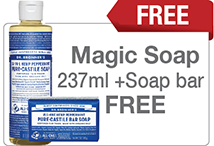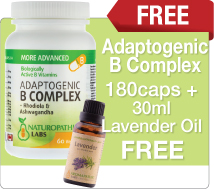Drug Addiction
Updated Dec. 01st, 2017
A person is said to become addicted to a substance when its withdrawal prevents the body from functioning normally. Substance abusers become physically and psychologically dependent on a drug. Successful treatment of drug addiction depends upon treating the physical, mental and emotional aspects of addiction. One must not forget that drug abuse also affects other family members.
Some studies have found that they are at an increased risk for addiction. They may also be in need of physical and emotional support.
It is not only the drug addiction itself that causes suffering for the addict, but also their lifestyle that affects overall health. Drug addicts are often at a higher risk for other diseases and are more at risk than someone who isn’t a drug user. Many drugs drain the body of essential nutrients and in addition to this, drug users might miss meals entirely due to the drug’s effects. This group of people are also at a higher risk for infectious diseases. Being addicted to drugs can drastically shorten their lifespan and greatly lowers their quality of life. Recovery from drug addiction is complex.
Drugs affect the neurochemical balance of the brain. One such neurochemical is dopamine. It is responsible for giving us satisfaction and pleasurable feelings. Alcohol, nicotine, marijuana, cocaine and most other drugs increase dopamine levels in the brain. The more they are used the less often the body must use its own mechanisms to release dopamine. Overtime the body becomes depleted of neurochemicals and is less able to react to pleasurable stimuli.
Symptoms of drug abuse start slowly and tend to manifest with problems at work or home. They may include depression, mood swings, a change in daily patterns and altered behaviour and personality. Addicts tend to have poor nutritional status because drug use decreases the sensation of hunger. Drug addicts may suffer from an impaired resistance to colds and flus.
Conventional treatment of substance abuse includes support groups such as Alcoholics Anonymous and Narcotics Anonymous for psychological dependence.
Treatment with medications is dependent on the type of drug that is used. For example, there are, drugs to prevent the narcotic “high”, naloxone, and drugs that give the same effect as narcotics but to a lesser extent, buprenex and methadone.
Natural therapies can help to decrease withdrawal symptoms, recover proper nutritional status and repair damage to organs.
Dietary changes for the several weeks of detoxification are aimed at stabilizing blood sugar and rebuilding the body’s nutritional stores. Avoid simple sugars, processed foods, fried foods, dairy products, soft drinks, and candy. Eat small meals that are high in fiber, including whole grains, fruits, and vegetables. Nutritional yeast is a good addition to the diet by providing a source of B vitamins that support the nervous system.






















